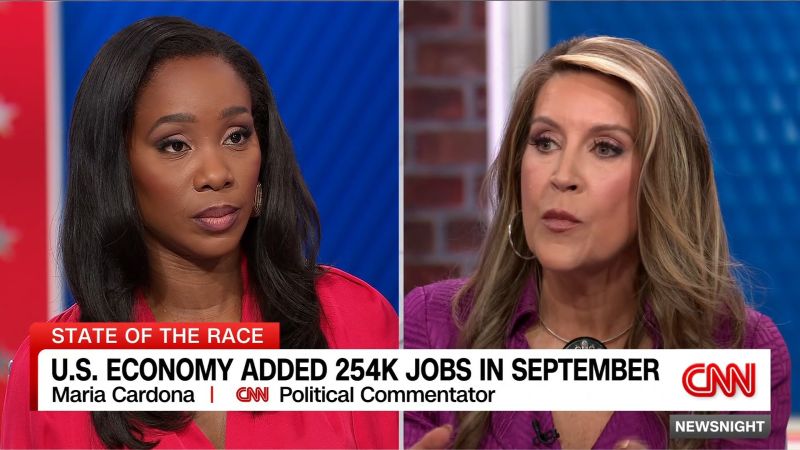The Harris campaign is celebrating a recent strong jobs report as a positive indicator for the future of the U.S. economy. Most economists agree that the report signifies mostly good news, with a growth in job creation and a decrease in unemployment rates. However, Republican Strategist Erin Perrine believes that until the American people actually feel the effects of this economic growth, Democrats will struggle to convince voters of its significance. This sentiment reflects a common challenge for political parties in translating economic data into tangible benefits for the average citizen.
The jobs report is seen as a crucial indicator of the health and strength of the economy, as job creation and unemployment rates are closely monitored by economists and policymakers. The recent report showing positive growth in these areas is likely to be used by the Harris campaign to bolster their economic platform and emphasize their ability to lead the country towards prosperity. However, the challenge remains in convincing the American people that this growth will directly benefit them in their everyday lives, as opposed to just being a statistic on paper.
Perrine’s skepticism about the Democrats’ ability to effectively use the jobs report as a selling point highlights the broader challenge of translating economic data into tangible benefits for voters. While positive economic indicators are certainly important, they can often feel disconnected from the realities of everyday life for many Americans. This disconnect can make it difficult for political parties to effectively communicate their economic policies and achievements in a way that resonates with voters on a personal level.
In the lead-up to the next election, both parties will likely continue to use economic data and reports to bolster their respective narratives about the state of the economy and their plans for the future. The Harris campaign’s focus on the recent jobs report reflects their confidence in their economic platform and their belief that they can effectively use this data to appeal to voters. However, the challenge remains in bridging the gap between economic indicators and the tangible benefits that voters can expect to see in their own lives.
As the Harris campaign looks to capitalize on the positive jobs report, they will need to find ways to connect the economic growth it represents to the everyday experiences of voters. This may involve highlighting specific industries or regions that have seen growth, as well as emphasizing the potential for job creation and improved wages for American workers. By framing the jobs report in a way that resonates with voters on a personal level, the Harris campaign can strengthen their economic messaging and make a compelling case for why they should be trusted to lead the country forward.
Ultimately, the success of the Harris campaign’s efforts to leverage the jobs report as a selling point will depend on their ability to effectively communicate the benefits of this economic growth to voters. While economic data can provide important insights into the state of the economy, it is the personal impact that matters most to many Americans. By focusing on the ways in which their economic policies will improve the lives of everyday citizens, the Harris campaign can build support and make a persuasive case for why they should be chosen to lead the country in the next election.













